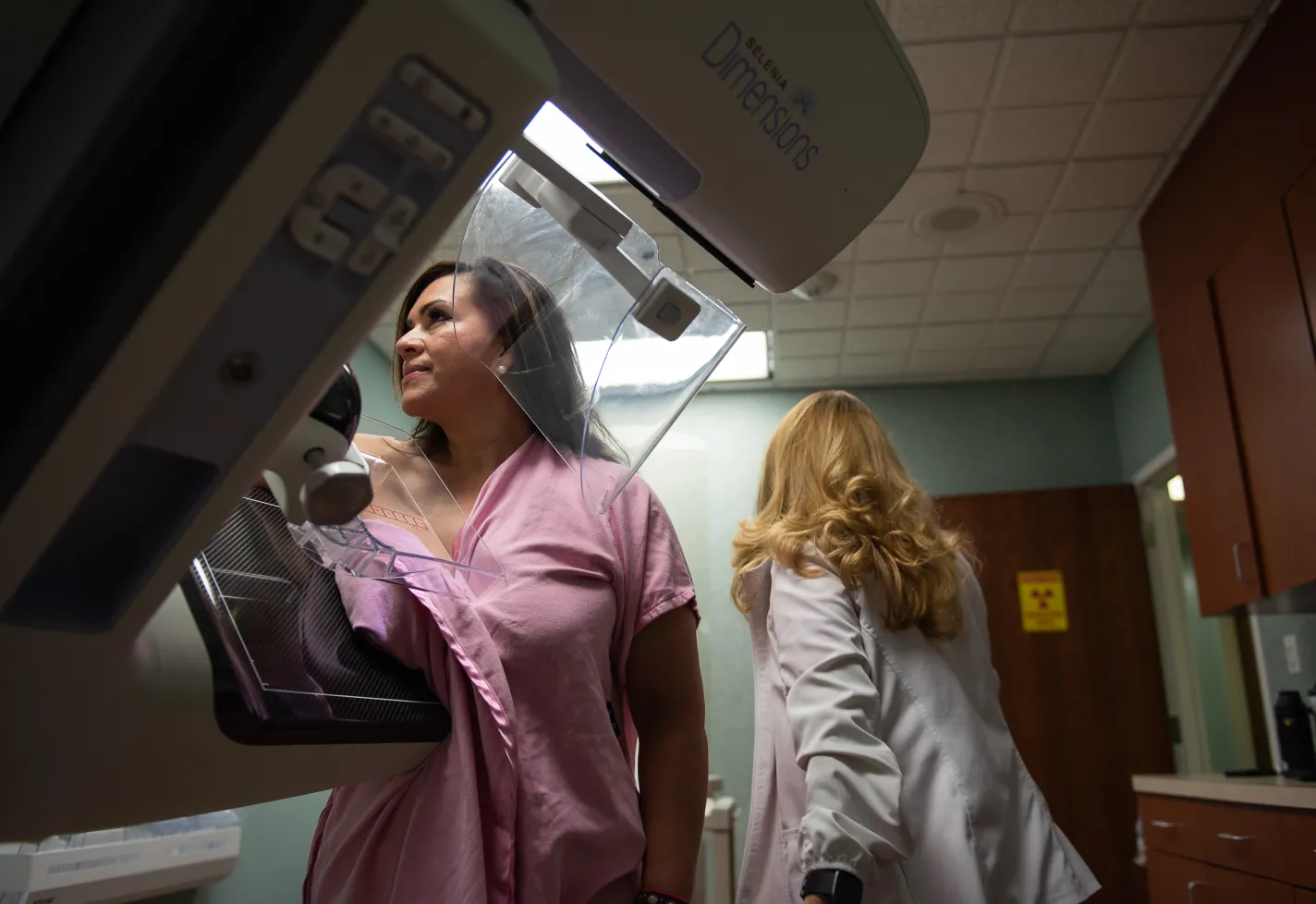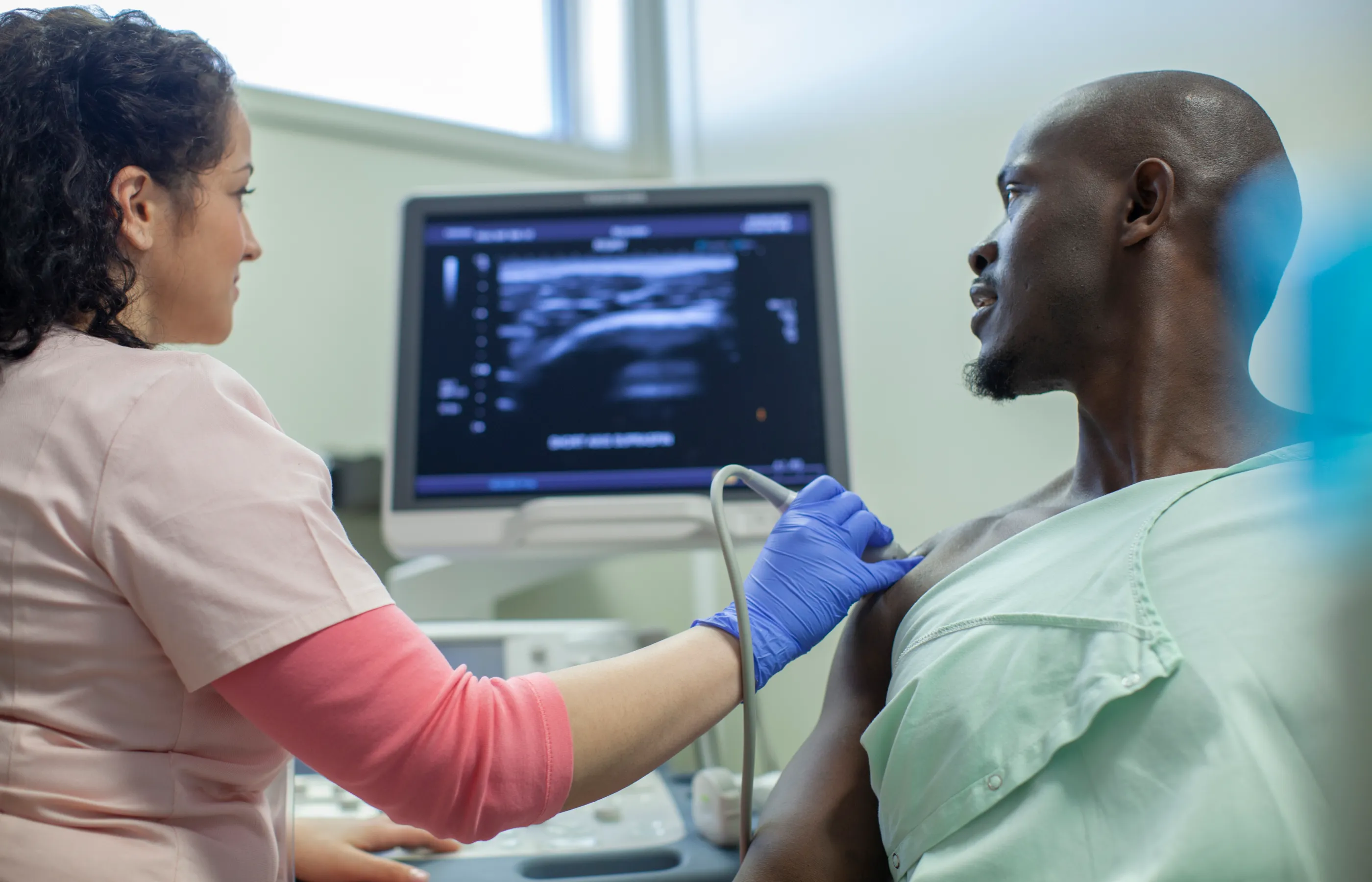Ultrasound
Gentle medical imaging for all stages of your health journey
Ultrasound, sometimes called sonogram, is a radiation-free, non-invasive medical imaging that uses high-frequency sound waves to create in-depth, clear medical images or videos of your organs and soft tissues.
Schedule Your Imaging Appointment.
What Ultrasound Measures

Ultrasound is commonly used to check the health of your:
- Growing baby (prenatal ultrasound)
- Belly and between your hips (abdomen and pelvis)
- Breasts
- Heart
- Kidneys and bladder
- Muscles and joints (musculoskeletal ultrasound)
- Reproductive system, such as your prostate or uterus and ovaries
- Thyroid
This test can reliably discover conditions that may be causing you discomfort in these areas, such as:
- Kidney stones
- Arthritis
- Muscle sprains and tears
- Trapped nerves
- Cysts
- Infections
- Blockages
- Growths
- Concerning blood vessels
Ultrasound is often a preferred imaging technique for pregnant parents and others looking for radiation-free imaging.
Types of Ultrasound
Sonogram images are created using a small device that gives off sound waves, called an ultrasound probe. You typically get to watch your images in real time as the images are taken.
There are three main types of ultrasound: external, internal, and endoscopic.
For Your Safety

It's possible you may be given a contrast solution for this exam. This helps make your images as clear as possible. If a contrast solution is needed, it's possible you may:
- Be given the solution through an injection or intravenous line (IV)
- Need to adjust your eating and drinking habits before the exam
- Have some mild side effects
When contrast is needed, it's possible the scan could have more risk for certain people. Make sure your care team knows:
- If you have any allergies at all, especially to iodine or contrast solution
- Your long-term and recent medical history
- Any medications or supplements you take
Allergic reactions are extremely rare. If you do have a reaction, our expert providers are trained to provide the help you need.
Find Imaging Centers Near You.
The care team referring you for imaging may help you set up your appointment at a particular location. You can also choose to schedule your imaging appointment at the imaging center most convenient to you. Visit individual imaging center websites to learn which specific types of imaging are offered or to schedule at that location.
The Importance of Mammograms
Getting a mammogram is one of the easiest, yet most important, steps you can take to protect your breast health. Did you know you can schedule your routine screening mammogram online in minutes, without a referral from your doctor?
Use the following links to view locations near you and choose a convenient date and time for your mammogram. (Patients in the Wilmington area can conveniently schedule using MyChart.) Many locations offer extended hours, making it easy for you to take control of your health.


Referring a Patient?
If you're a referring physician or healthcare professional, we can help you find the right specialist, programs and services for your patient.
